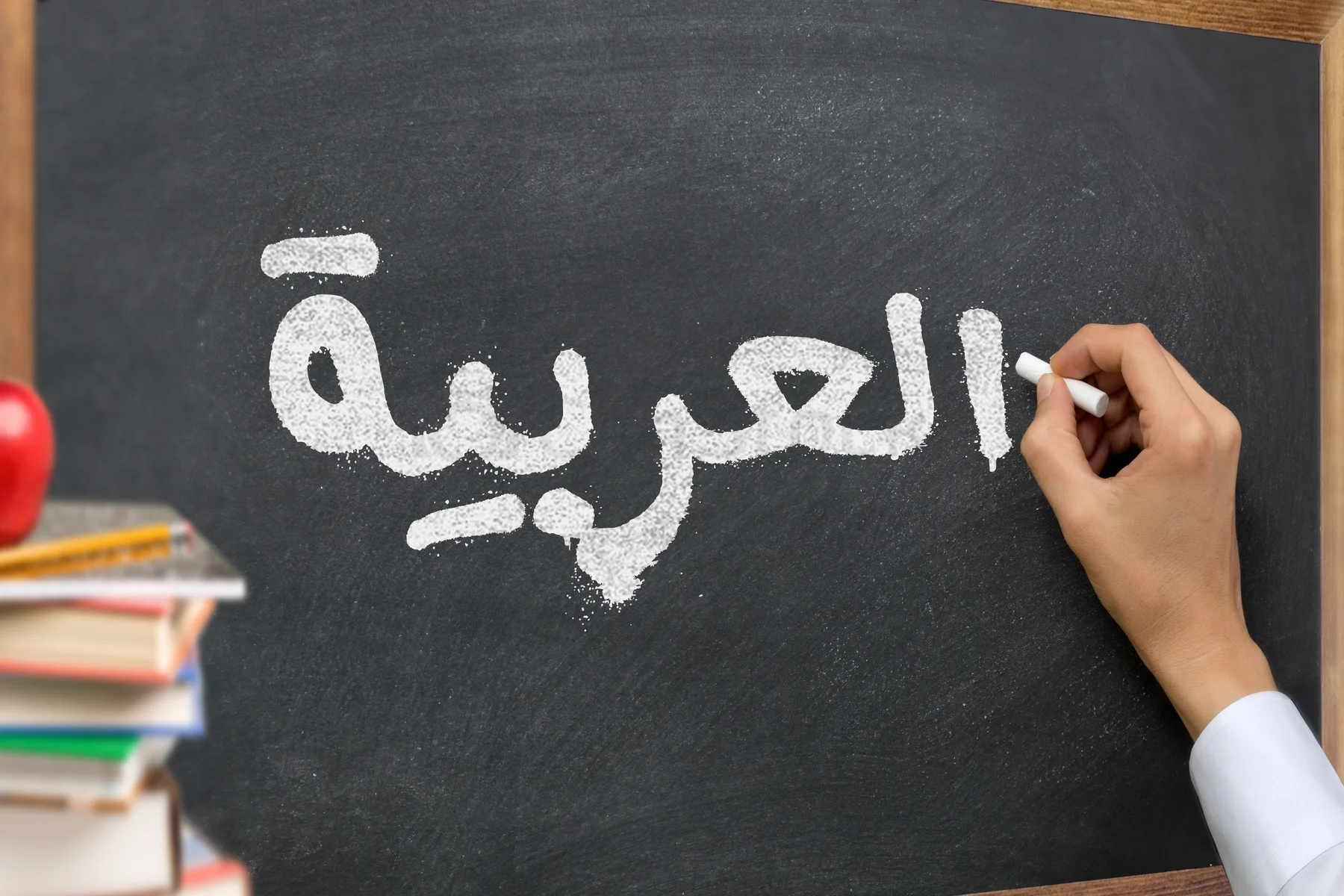Modern Standard Arabic or Colloquial Arabic, Which to Choose for Kids?

Modern Standard Arabic is the language of education, news, and of course the language of the Qur’an. As for colloquial dialects, they are what we use on a daily basis, and here the most difficult questions arise: What is Modern Standard Arabic? Learning classical Arabic or colloquial dialect? Which one is best for my child? Continue reading the article to find out the answers.
What is Modern Standard Arabic?
Modern Standard Arabic is a form of the Arabic language, a language that developed and was based on the foundations of the Classical Language, that is, the language of the Holy Qur’an and early Islamic literature. Modern Standard Arabic is distinguished by being one of the six official languages of the United Nations, and an official language or co-official language of many Arab countries, such as: Asia and North Africa in particular. It is the bridge that allows these countries and peoples to communicate, and it is used on political and rhetorical platforms, in official correspondence and in lectures. It is also widely used in television, radio, newspapers, literature, religious sermons, and children's media.
Levels of proficiency in Modern Standard Arabic, reading and writing, vary. Educated people are often good at it, while uneducated people may understand it somewhat. Modern Standard Language is learned by students in schools, universities and institutes, and they write and read in it.
Modern Standard Arabic and Colloquial Arabic, Which is Better for Kids?
One of the biggest challenges facing Arab parents living abroad is how to teach Arabic to their children, and whether the focus should be on the standard Arabic or on their local dialect spoken at home. Let's figure out the differences between Modern Standard Arabic and Colloquial Arabic:
Modern Standard Arabic
Modern Standard Arabic, also known by its acronym MSA, is the direct result of modern Arabic and a standardized version of the language. It is the type of Arabic used in universities, Arabic language schools, audiovisual and written media, and other formal contexts. Colloquial language differs from classical Arabic, yet it still relies to a large extent on its foundations, borrows a huge amount of its vocabulary, and relies on it to convey meanings. Even today, the grammar of the Classical Arabic language plays an important role in the way vocabulary is pronounced on the one hand, and the arrangement of words in sentence structures on the other hand. For example: (door, key, apple, rain, sea, land) are words that we use in both classical and colloquial Arabic. Learning Arabic is a way for the child to relate to the rituals of the Islamic religion, as the Arabic language is the language of the Holy Quran. Therefore, learning classical Arabic and its correct interpretations helps in memorizing, reading, contemplating, and understanding the Qur’an, the teachings of religion, and the rulings of Sharia law, so that your child’s understanding and taste for the religious text is sound, even if he has not completely mastered the related grammatical and morphological rules. If you plan on working in full capacity in any Arab country, regardless of where you expect to be, you need to be able to speak Modern Standard Arabic.
Colloquial Arabic
Arabic has tens of dialectics that can be very different from each other. They tend to differ from one country to another. In some countries, they even differ from one city to another. The colloquial dialect is characterized by speed in performance, ease of pronunciation, and ease in conveying an idea, without taking into account grammatical analysis or letter formation. It is used at home, on the street, and in communicating with others, no matter how different the Arab countries are. You’ll mainly use these dialects if you live in a place where most of the population speaks that particular dialect. So, for example, if you’re traveling to Egypt and want to communicate with Egyptians, you’ll use Egyptian Colloquial Arabic. And if you’re traveling to any Gulf countries, you need to communicate in Khaliji.
In conclusion, it is important to expose the child to the Arabic language on an ongoing basis and avoid translating from Arabic into the language that the child masters. It may seem difficult at first, but with time the child will be able to deal with the Arabic language smoothly. Thus, learning Modern Standard Language is a good choice to start the process of learning Arabic. With it, one can keep up with current events and live news, and learn about ancient and contemporary Arab culture. It is also easy to learn Modern Standard Arabic because there are a large number of books and various tools in this language, in addition to online Arabic lessons. Another advantage of learning Modern Standard Language is that it is an introduction to colloquial Arabic. It helps in learning the grammatical and phonetic rules necessary for any spoken dialect, and with it one can communicate with others to fulfill needs in any Arab country in the world, regardless of the colloquial dialect spoken. Therefore, starting with modern standard Arabic enables the learning of any dialect we want to learn and will let us properly communicate in Arabic in all countries. This is something that will not happen if we decide directly for colloquial Arabic, only understood by people in the area in which that dialect is spoken.
Explore the richness of the Arabic language and Egyptian dialect with our online courses tailored for learners worldwide, whether you're a beginner or an advanced student, our comprehensive curriculum and expert instruction provide an immersive learning experience accessible from anywhere. Dive into the program in Arabic, designed to deepen your understanding and proficiency in this vital language. Book a free Arabic lesson!


